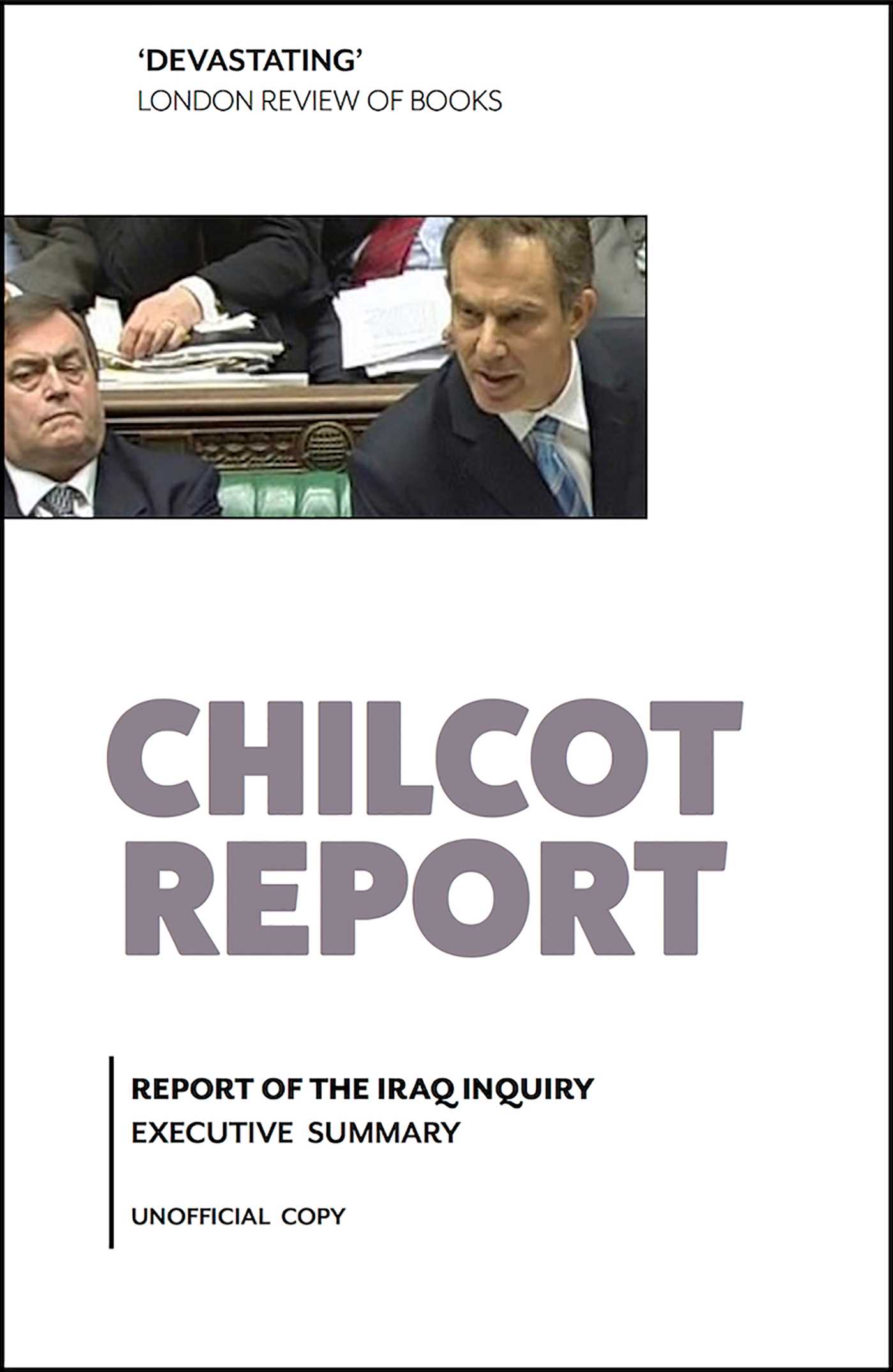Chilcot Report: Executive Summary
7.99 JOD
Please allow 2 – 5 weeks for delivery of this item
Add to Gift RegistryDescription
A further and devastating indictment not only of Tony Blair personally but of a whole apparatus of state and government, Cabinet, Parliament, armed forces, and, far from least, intelligence agencies.  GEOFFREY WHEATCROFT, THE NEW YORK REVIEW OF BOOKS ‘It offers a long and painful account of an episode that may come to be seen as marking the moment when the UK fell off its global perch, trust in government collapsed and the country turned inward and began to disintegrate.’ PHILIPPE SANDS, LONDON REVIEW OF BOOKSDescription All the key findings of the public inquiry into the handling of the 2003 Iraq war by Tony Blair’s government in a 60,000-word book. Chaired by Sir John Chilcot, the Iraq Inquiry (known as the ‘Chilcot Report’) tackled: Saddam Hussein’s threat to Britain The legal advice for the invasion Intelligence about weapons of mass destruction and Planning for a post-conflict Iraq The behaviour of the GCHQ whistleblower Katharine Gun and the controversy over whether Iraq had weapons of mass destruction formed the subject of the political thriller Official Secrets.Contents Introduction Pre-conflict strategy and planning. The UK decision to support US military action. UK policy before 9/11; The impact of 9/11; Decision to take the UN route; Negotiation of resolution 1441; The prospect of military action; The gap between the Permanent Members of the Security Council widens; The end of the UN route Why Iraq? Why now? Was Iraq a serious or imminent threat?; The predicted increase in the threat to the UK as a result of military action in Iraq The UK relationship with the US Decision-making. Collective responsibility Advice on the legal basis for military action. The timing of Lord Goldsmith advice on the interpretation of resolution 1441; Goldsmith advice of 7 March 2003; Goldsmith arrival at a “better viewâ€; The exchange of letters on 14 and 15 March 2003; Goldsmith Written Answer of 17 March 2003 Weapons of mass destruction. Iraq WMD assessments, pre-July 2002; Iraq WMD assessments, July to September 2002; Iraq WMD assessments, October 2002 to March 2003; The search for WMD Planning for a post-Saddam Hussein Iraq. The failure to plan or prepare for known risks; The planning process and decision-making Occupation. Looting in Basra; Looting in Baghdad; UK influence on post-invasion strategy: resolution 1483; UK influence on the Coalition Provisional Authority; A decline in security; The turning point Transition. UK influence on US strategy post-CPA; Planning for withdrawal; The impact of Afghanistan; Iraqiisation Preparation for withdrawal. A major divergence in strategy; A possible civil war; Force Level Review; The beginning of the end Did the UK achieve its objectives in Iraq? All the key findings of the public inquiry into Britain’s handling of the 2003 Iraq war. Chaired by Sir John Chilcot, the Iraq Inquiry tackled the threat to Britain; the legal advice for the invasion; intelligence about weapons of mass destruction; and planning for a post-conflict Iraq. This 60,000-word exec summary was published in July 2016.
Additional information
| Dimensions | 19.8 × 12.901 cm |
|---|---|
| Format Old` | |
| Language | |
| Pages | 220 |
| Publisher | |
| Year Published | 16-8-2016 |
| Imprint | |
| Publication City/Country | London, United Kingdom |
| ISBN 10 | 099549780X |
Only logged in customers who have purchased this product may leave a review.






Reviews
There are no reviews yet.